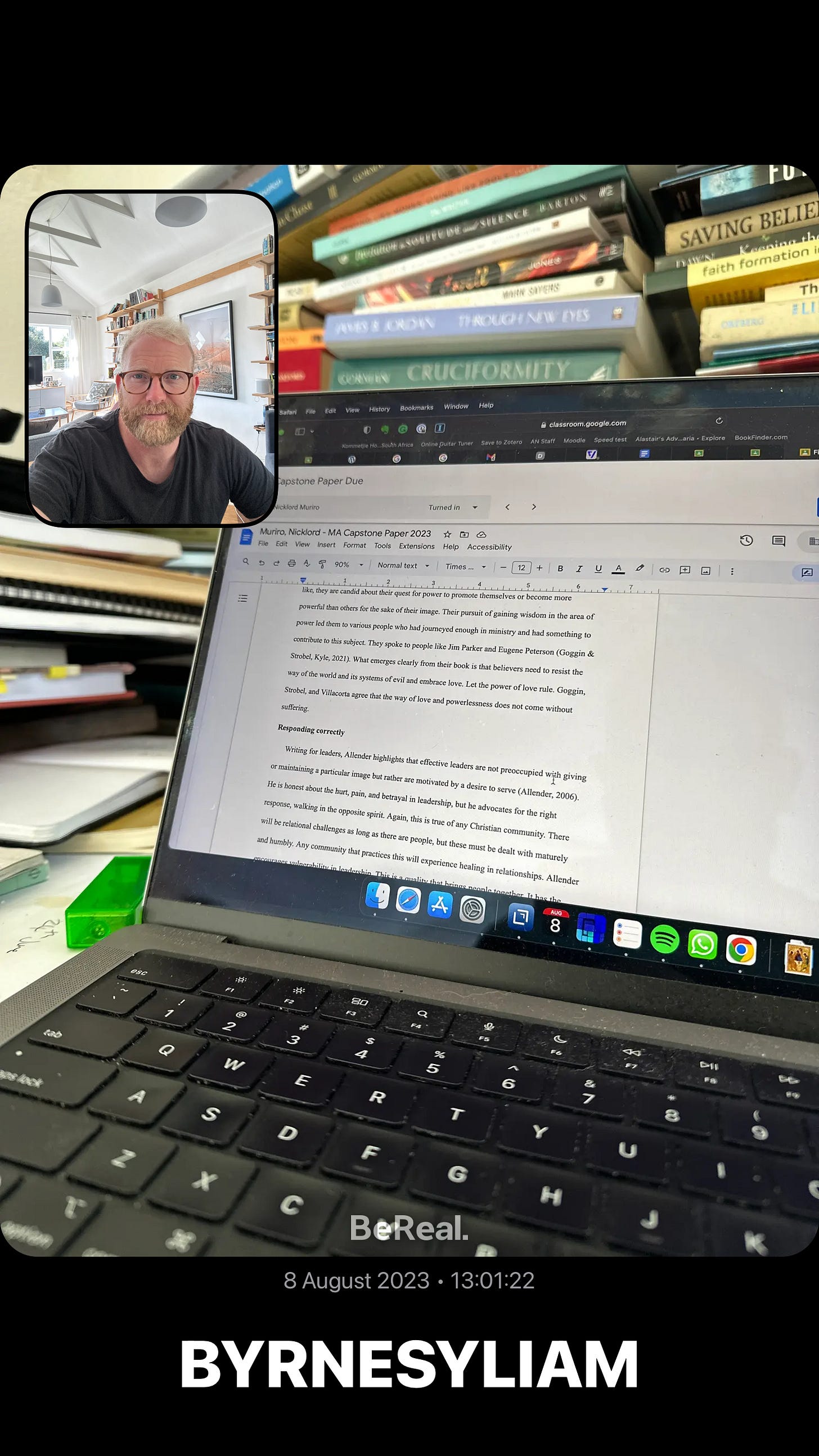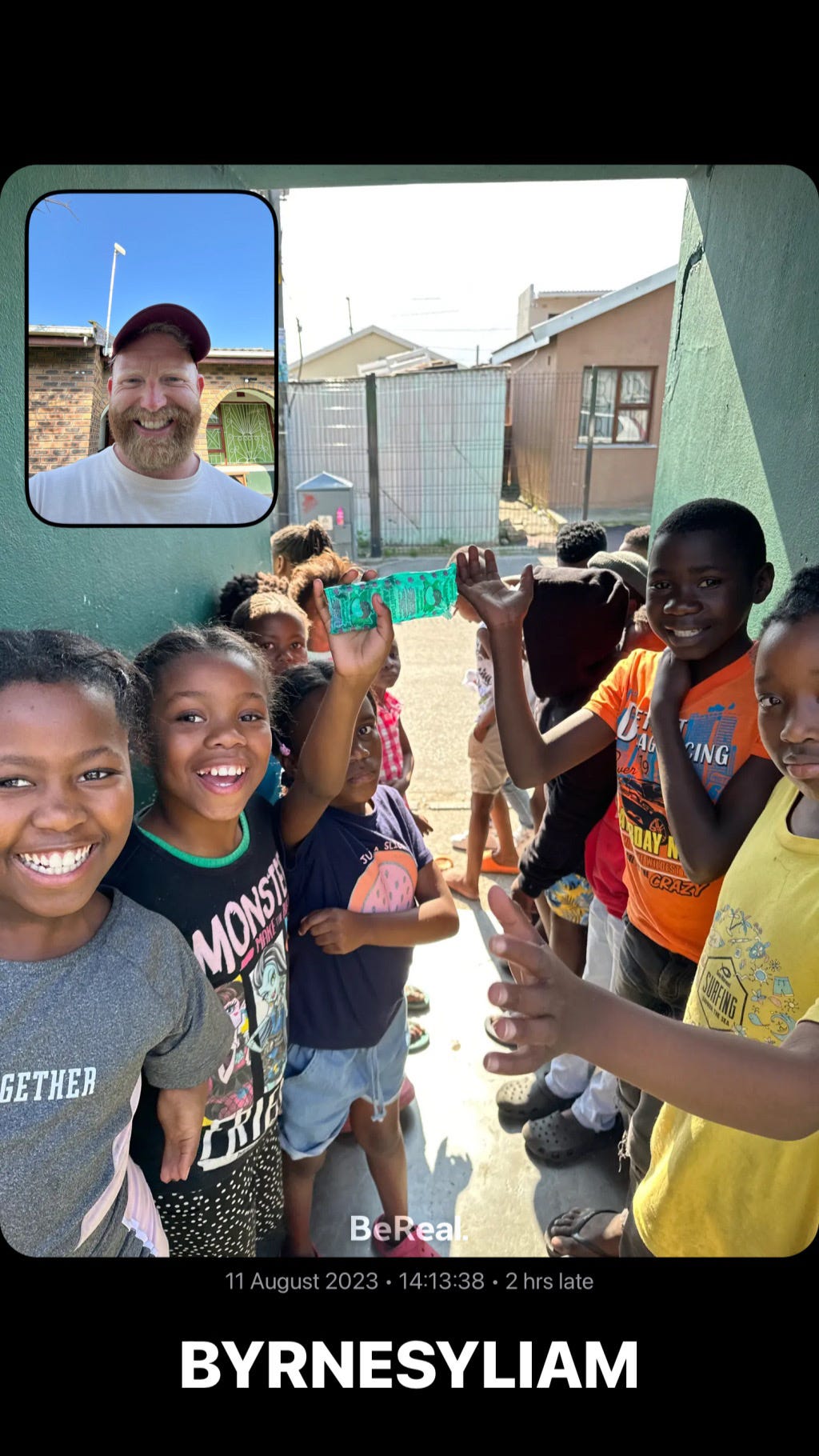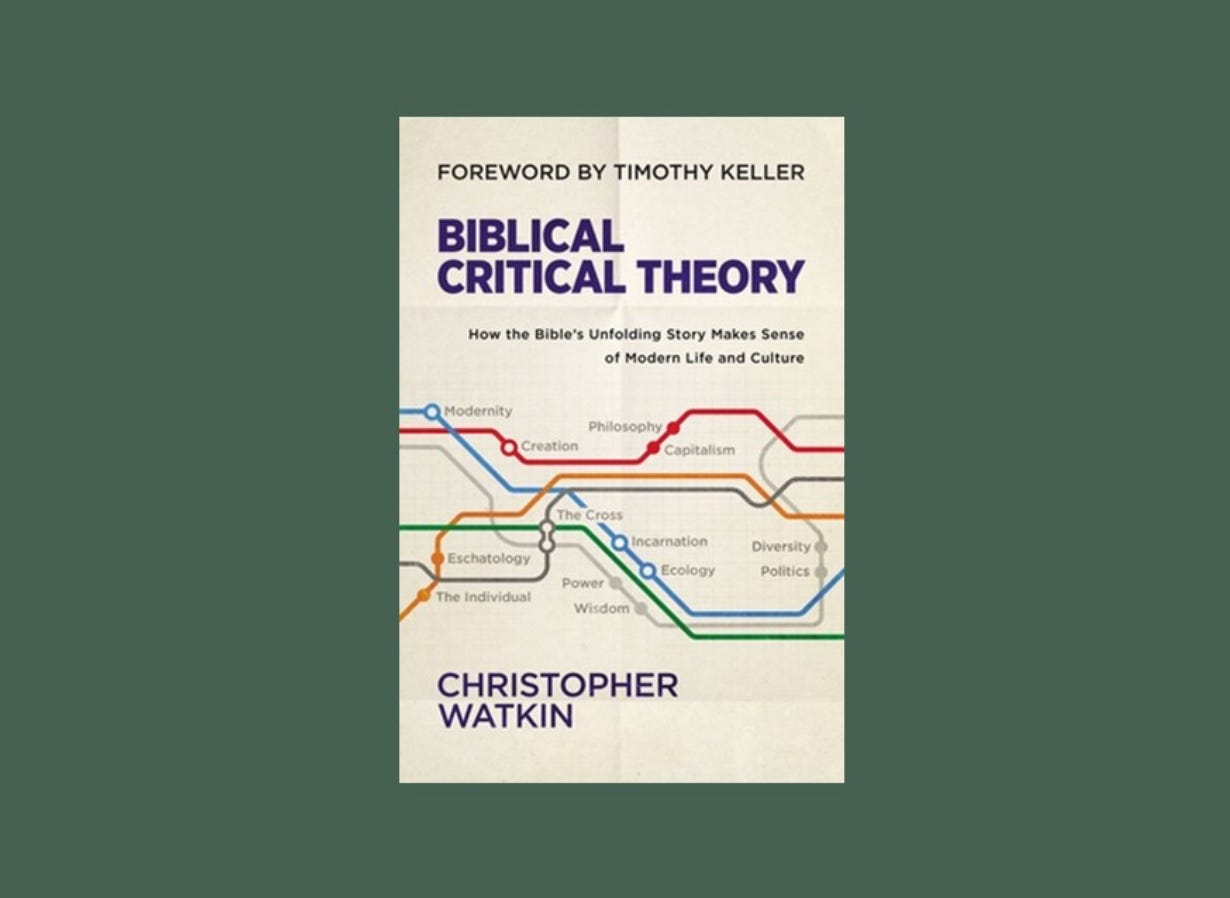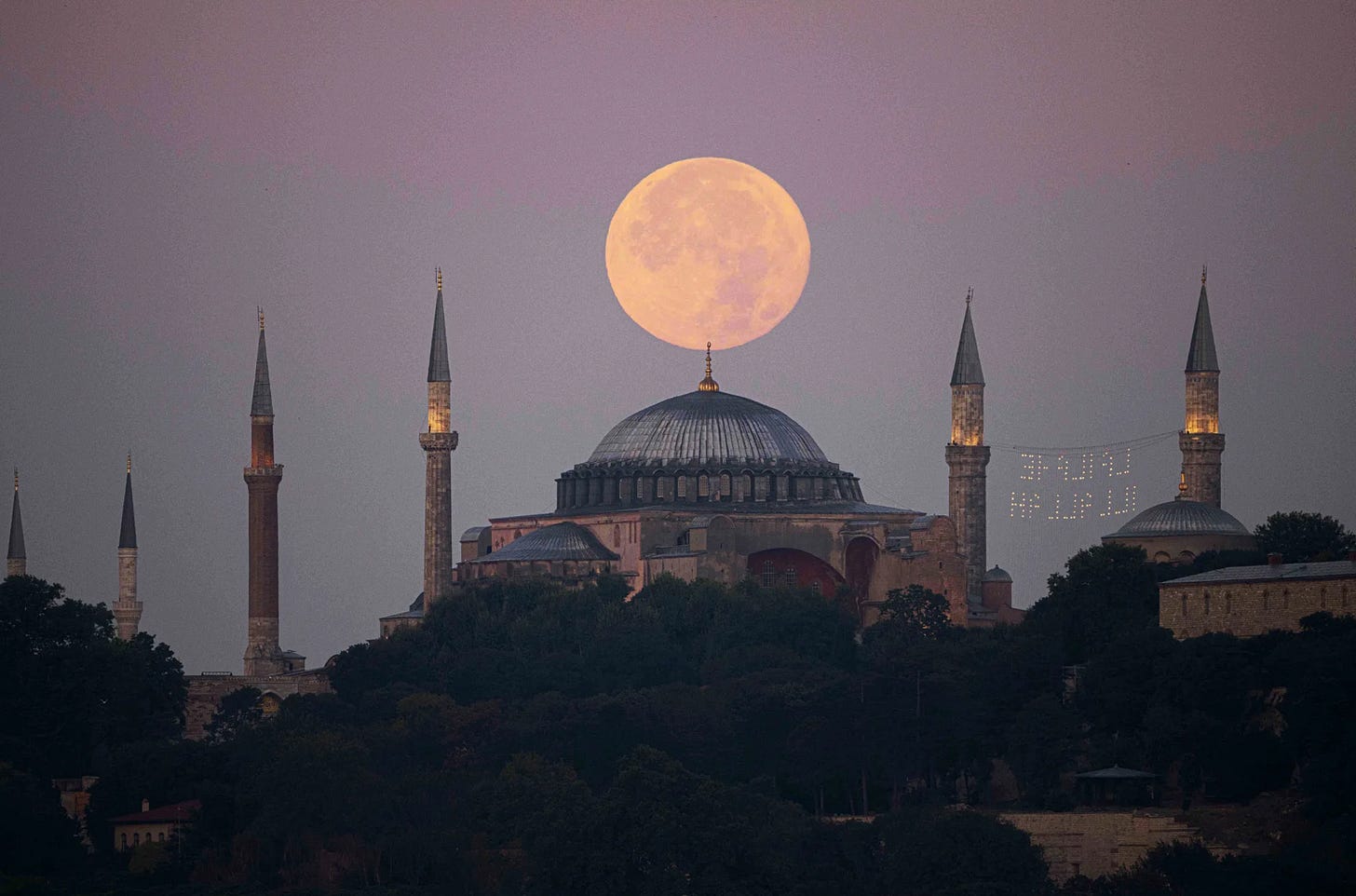The Lectio Letter - Issue #73 - You need Therapy! - INTERVIEW with Anne Harrington
“God's passion is to rig the world so that we are compelled to deal with whatever blocks us from being like His glorious Son.”
― Dan Allender
"Spiritual transformation, not self-knowledge, is the goal of Christian spirituality… With God's help, we need to break through our illusions and see ourselves as we truly are in relation to God…[This includes]…knowing three things: our self as deeply loved, our self as deeply sinful, and our self as in the process of being redeemed and restored"
— David Benner
“Ignoring our emotions is turning our back on reality; listening to our emotions ushers us into reality. And reality is where we meet God.”
― Dan Allender
“Every emotion, though horizontally provoked, nevertheless reflects something about the vertical dimension: our relationship with God.”
― Dan Allender
Welcome to Issue #73 of the Lectio Letter. This (usually) members-only newsletter is filled with music, film and food suggestions, links, and an article written by yours truly.
Whether you become a paid subscriber or not, I’m very grateful to each of you who read and respond to this newsletter.
The Lectio Letter is a reader-supported publication. To receive new posts and support my work, consider becoming a free or paid subscriber.
PSA: I’ve heard a number of people have been missing out on the whole email if they use Gmail because the email gets ‘clipped’.
You can see at the bottom of the email if it says “message clipped”, then click “View entire message” to see it all.
You are not getting it all if you don’t see my signature at the bottom.Alternatively, if you don’t want to read this in your email, you can use the substack app (where you can listen to the article read out) or read it online at LectioLetter.com
Introduction
Almost 14 years ago Rachel and I did a discipleship training school with Youth with a Mission. While I’m grateful for many of the experiences we had, undoubtedly the richest takeaways were the relationships with people that we made deep connections with. I’m grateful to introduce you to one of those friends; Anne Harrington.
Anne, Rachel and I not only engaged in the lecture portion of the school together, we were also on the same outreach team here in South Africa. Anne visited us here and engaged in prison ministry during the time when she was studying Theology and Psychology at Gordon-Conwell Theological Seminary, she then went on to become a qualified therapist.
While this can seem to some like something of a re-direction, our experience here in ministry has convinced me that good theology and pastoral care find their practical expression, in the lives and stories of those we minister to. It is not a surprise then that the Greek word for salvation, sozo, is the same for healing.
While mental health and therapeutic terms have become common in mainstream conversation these days, I’m not always sure we are grasping those terms clearly and integrating them into our lives in distinctly Christian ways. That is why I am glad to interview Anne to hear some of her much more ‘qualified’ thoughts as someone trained in both theology and therapeutic care.
Disclaimer: the title “You need Therapy!” was my click-baity addition, not Anne’s suggestion ;)
While this part of the interview is free for anyone to read, If you want to get access to the following two parts of the interview where we get into attachment theory, anxiety and EMDR, you can sign up as a supporting member. If you’re not quite ready to commit but want to read them anyway you can get a free 7-day trial and read all of the past 73 issues right now;
I hope you enjoy this Lectio, Feel free to leave a comment or a question after you’ve read it, I love receiving those.
Status Board
Life
You may notice this edition is coming out a week late! I spent hours last week reading about 800 pages worth of Capstone write-ups. This marks the very last submission for our 27 M.A. candidates. It has been a long journey with delays through COVID, but so many of the candidates ran deeply transformative projects which impacted the people they gathered to disciple as well as themselves.
Unfortunately, this past week was marked by a city shutdown due to the taxi association striking in response to what they believe were unjustified impounding of their vehicles. The strike became violent leading to roads being shut, people being intimidated into staying away from work, stones being thrown and even 5 deaths. A few of our friends had their cars damaged and another friend stayed at our house for a few hours when the road home was shut off by burning tires. On Thursday the strike was called off and we were grateful to get back into Masiphumelele on Friday to run the kids club and see lots of joy in the newfound freedom after a week of such difficult unrest.
Reading
In my small corner of the world, I am often asked for book recommendations. I actually don’t read that many books per year (normally around 20-30) compared to some people I know, but one of the ways I become aware of books is by reading lots of reviews.
These can often give you the value of a book without the time exerted to actually read it. Of course, if you only read book reviews your perception will be quite thin, but I’ve found it a great way to ‘shop’ for books that I really want to read with the side advantage that I get a sense of what is out there.
For Christian books the two places I found the most helpful reviews are Bob on Books and the Engelwood Review of books.
I just managed to get my hands on Biblical Critical Theory by Christopher Watkin. After watching a number of interviews with him on the subject (I posted one in the last lectio here) I was grateful to begin reading it.
Critical theories all have one thing in common. They are trying to introduce a lens to make sense of why the world is the way it is. Usually, this is to focus on one aspect of life, the most consistent being economics, race and time. Christopher Watkins is a (very likeable) British Professor in French philosophy and has spent much time reading these theories. While he is sympathetic at times to the concerns raised by these various critical theories he uses this book to provide some insight into what kind of lens the bible gives us into the question of ‘why the world is the way it is’.
Rather than countering that the critiques of critical theory are wrong, he provides explanations of why they are limited. He introduces an approach he calls ‘diagonalisation’. That is to say, that the bible often holds together what other theories hold apart. A well-known example of this would be the relationship between justice and mercy.
While it is a popular-level practical book, it is also quite dense and covers quite a bit of technical concepts that may be new to some. That being said, It’d be a great book to read in a group and discuss.
Music
I’ve come across quite a few pieces of music recently with fascinating background stories;
Natalie Bergman’s faith-filled grief
Natalie Bergman was a part of the LA based successful brother-sister duo '“Wild Belle”, when tragedy hit. Her Father and Mother-in-law were killed by a drunk driver driving the wrong way down a road.
Bergman retreated to a desert monastery observing their fixed-hour prayer and the faith she found permeates her solo songwriting.
David Darling and the Wulu Bunun
Probably the most common cross-cultural collaboration has been where the East meets the West. From Ravi Shankar and George Harrison to Sam Mills and Paban das Baul, via Shakti most have involved musicians from the Indian sub-continent. Far Eastern fusions may have been fewer, but a disproportionately high volume of western releases of East Asian music is of the collaborative kind. But are they are any good?
Well, there have been some pretty horrendous albums of the New Age variety usually featuring a spacey westerner searching for spiritual enlightenment and a connection to Zen Buddhism.
American cello player David Darling is refreshingly candid when talking about his collaborative experience with the indigenous Bunun people of Taiwan.
“When we started the project, I said that I don’t like interfering with indigenous music” he explains. “The only thing I said I can guarantee is that I will not do it in a pop way. I will do it in my typical cello way, where I layer my cello on top and if they approve of it in the beginning I’ll complete it, but if they don’t like it wholeheartedly that’s fine with me.” Fortunately the Bunun singers did like it and weren’t afraid to say if they didn’t.
The village is called Wulu, and the people are called Bunun, one of the tribes who once existed on the island called Formosa now called Taiwan, before the Chinese ever came there. They say that Wulu village is one of the last villages to have really held on to the traditional a cappella singing.
Watching
The Tour de France recently ended and carrying on with our trend of watching sports season-based docu-series (Make or Break, Drive to Survive etc.) we watched Tour de France Unchained. The stamina and resolve of these cyclists are utterly incredible;
On the other side of the spectrum, we were recommended to watch the incredible and true-ish story Pez outlaw about a mental health-challenged man in the midwest with an extraordinary story of becoming a pez collector and then importer. It sounds boring, but it is surprisingly well dramatised in this film
Eating
Rachel made this fantastic Hazelnut, Raspberry and peach cake from Ottolenghi;
Ingredients
sunflower oil 2 tsp
peaches 2 large, stones removed, sliced into 1½cm-wide wedges (340g)
raspberries 200g
caster sugar 320g
blanched hazelnuts 125g
unsalted butter 200g, at room temperature
eggs 3 large, beaten
plain flour 125g
baking powder 1½ tsp
salt ⅛ tsp
Process
Preheat the oven to 170C fan/gas mark 4½. Line a 24cm round springform cake tin with parchment paper and brush with the oil.
Place the peaches in a medium bowl with 150g of the raspberries and 1 tablespoon of sugar. Mix together and set aside.
Blitz the hazelnuts in a food processor for under a minute, until roughly ground. Set aside.
Put the remaining sugar into the bowl of a free-standing mixer with the butter. Beat until smooth and well combined, then gradually add the eggs, until incorporated. Add the ground hazelnuts, flour, baking powder and salt, and continue to mix until smooth. Pour the batter into the cake tin and arrange the peach slices and raspberries randomly on top. Bake for 70–80 minutes, covering the cake with tin foil after 30 minutes so that it does not take on too much colour.
Remove from the oven and set aside to cool slightly before releasing the cake from its tin. Place the remaining 50g of raspberries on top of the cake, in the middle, and serve.
“You Need Therapy!” — An Interview with our Friend and trained counsellor ANNE HARRINGTON
LIAM: Anne, I am so grateful for your willingness to share here, I want to start by asking what initially drew you into studying counselling/therapy as a theology graduate?
ANNE: The unstated goal of any kind of ministry is change. We tend to couch this in the language of discipleship, having our minds renewed, becoming like that which we worship, etc., but change is the ultimate goal.
I didn't enter seminary with a specific type of ministry in mind. In fact, I wasn't even sure I wanted to be in vocational ministry, but I knew that I had experienced profound internal transformation by the Holy Spirit and wanted to better understand how I could facilitate that for others.
“The unstated goal of any kind of ministry is change.” — Anne Harrington
Much of my own transformation took place in YWAM and in a church that placed a heavy emphasis on missions and "changing the world for Jesus" (to put it somewhat crudely). While working on my MDiv, I did a summer internship with Hope Prison Ministry in South Africa. I got to co-facilitate several small groups in their restorative justice program, and absolutely loved it.
Their RJ (restorative justice) program is well-informed by counselling psychology, and after my stint there, I decided to pivot away from the pastoral ministry trajectory and pursue counselling instead. I figured that if this was the type of work I wanted to do, if this was the type of change I wanted to be part of, I didn't need more preaching classes - I needed training as a counsellor. I've accumulated about 5 years of experience in the field now, and I am slowly but surely developing my skills as a trauma specialist.
LIAM: Some, Christians in particular, feel like therapy can result in navel-gazing rather than God-gazing. How would you describe the goal of a therapeutic context to them?
ANNE: Regardless of a client's faith background, I personally think that navel-gazing can be avoided if a therapist is motivated and skilled enough. A good therapist will challenge you to look outside yourself and at the impact your actions are having on those around you, rather than letting you avoid responsibility by fixating on victim narratives.
This obsession with personal victim narratives at the expense of accountability seems to be especially prevalent among hyper-individualistic communities (the irony being, an unhealthy fixation on one's victimhood is fed both by hyper-individualism and codependency, but I digress).
About one-third of my current clients are Christians, and I often hear that they're afraid of "navel gazing." When I start to investigate why, I almost always find that this concern is actually a defense that serves to prevent them from truly facing their pain.
So many Christ-followers have not had an experience of Jesus as our ultimate healer; deep down they fear that if they allow their wounds to be exposed, Jesus will not meet them there, and their faith will be shaken or shattered.
Better to keep things shallow, struggle with mild to moderate anxious/depressive symptoms or addiction, and self-flagellate for not having enough faith/self-control/spiritual discipline/etc.
Although it is painful, challenging, and costly at times, self-awareness is not a thing to be feared. For Christians, embarking on a healing journey (of which therapy is just one component) will bring us face to face with the living God in a way we never will by trying to white-knuckle it through our spiritual life.
So many Christ-followers have not had an experience of Jesus as our ultimate healer; deep down they fear that if they allow their wounds to be exposed, Jesus will not meet them there, and their faith will be shaken or shattered.
We will become acutely aware of our wounds, even as we receive and participate in their healing by the power of the Holy Spirit. We will be faced with our own powerlessness and deeply human limitations, as well as be confronted by our personal responsibility and God-given agency.
In short, understanding ourselves--our pain, fears, motivations, desires, abilities, and limitations--will give us a clearer path to being formed into the image of Christ.
LIAM: How have you seen the self-awareness developed in a counselling space help them step into deeper spiritual formation?
ANNE: As I mentioned earlier, lots of the Christians I see are very fearful of how opening up their story will impact their faith. Some are clinging to simplistic and fundamentalist theology that has very little to offer those who've experience abuse, neglect, abandonment, or other forms of profound suffering.
One client I see prides himself in his "high Christology," leaving little to no room for the humanity of an incarnate Jesus who bore the weight of our sickness, pain, and sin in any manner more than a set of ethereal theological propositions.
Without understanding Jesus as the ultimate human who experienced the ultimate suffering, we will never be able to lay our suffering bare before him and receive healing.
This is where I find attachment theory very helpful.
Most of us relate to God similarly to how we relate to our primary attachment figure(s). Krispin Mayfield's book, Attached to God, is a great resource on this.
When we had distant or emotionally unavailable parents, we relate to God as though he is also distant and emotionally unavailable.If we had parents who were needy or emotionally enmeshed with us, we will find ourselves stuck in cycles of performance, trying to please an endlessly demanding God. If we had abusive or otherwise volatile parents, we will find ourselves holding God at arm's length, compulsively checking ourselves for inadvertent sin and reflexively cowering in fear.
Without understanding Jesus as the ultimate human who experienced the ultimate suffering, we will never be able to lay our suffering bare before him and receive healing.
As clients become aware of these deeply ingrained attachment patterns, the more we can work on healing them. In my personal experience, Internal Family Systems and Eye-Movement Desensitization and Reprocessing (two of the main trauma therapies I practice) often result in a reorientation of attachment with God as a secure attachment figure, which fundamentally alters the ways in which we live our faith.
In the next two parts of the interview, Anne will answer my questions related to;
“what is attachment theory and why it makes a difference in our relationship to God?”
and whether “the spike in mental health is “real” or just that our use of language has shifted?”,
“what is the difference between anxiety and regular “worry”?
To read the next two you’ll need to be a member of the Lectio Letter, sign up below for a free trial and to read any of previous 73 issues
Miscellaneous Links
Man who visited every country without flying has finally returned home
Pedersen set a couple of rules for himself. He’d spend at least 24 hours in each nation and resist returning home until he finished.
He’d also do his best to keep costs low and live off a budget of roughly US$20 a day.
On May 24, that day finally came. After nearly ten years of travel, Pedersen successfully visited his 203rd and final country, the Maldives, and began his long-awaited voyage back to Denmark.
Supermoon puts on a dazzling display across the world
The full moon appeared bigger and brighter than usual Tuesday night, with the natural satellite positioned closer to Earth than usual, just 222,159 miles away.
“Fossil remains discovered from what is believed to be the heaviest animal known”
Researchers have uncovered fossil remains from what is believed to be the heaviest animal known to have existed, according to findings published yesterday. The specimen is an ancient whale species—dubbed Perucetus colossus, or "the colossal whale from Peru"—roughly 39 million years old.
The creature is estimated to have weighed more than 300 tons or more, two to three times the size of a blue whale (the current record holder). Estimates were modeled from a partial skeleton, which included individual vertebrae weighing more than 220 pounds each—only one to two has been excavated each year since the site was discovered a decade ago.
Cetaceans have long fascinated evolutionary scientists. Their ancestors emerged from the ocean onto land roughly 400 million years ago but returned to the sea 50 million years later. Scientists say the discovery challenges conventional theory on how big mammals can grow.
On the implications of design
When it comes to design in the real world, there are a few basic rules that seem to always apply:
If it looks neat, people will want to take a photo with it. If it looks comfortable, people will want to sit on it. If it looks fun, people will play around on it. Etc.
When did people stop being drunk all the time?
Trends in alcohol consumption from the middle ages to the modern world tell a story.
A Fascinating Video of How Pencils are made in a Japanese Factory
via Kottke;
My favorite part of watching pencils get made is always the sharpening of the finished pencils by belt sander.
If you enjoyed this newsletter, have a question, or suggestion, feel free to leave a comment;
This edition of the Lectio letter is free to everyone, but I’d be so grateful if you’d consider becoming a supporter of my writing and ministry.
You can get a free trial below which unlocks access to all the last 70+ articles and newsletters.
Finally, if you think someone else would be interested and enjoy this, please do share it with them
That’s all for now…

















Thanks so much Liam, what an incredible letter - we loved reading it. Looking forward to the other 2 parts on this topic!
Thankful once again Liam for you mind, heart, and work. Keep it coming. Dad g